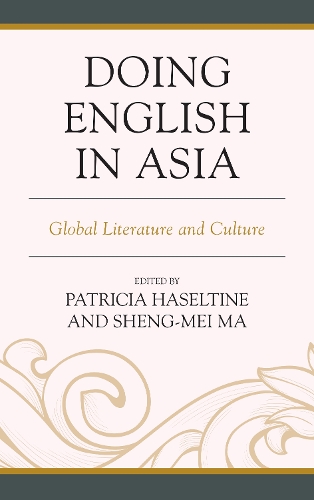
Doing English in Asia: Global Literature and Culture
(Hardback)
Publishing Details
Doing English in Asia: Global Literature and Culture
By (Author) Patricia Haseltine
Edited by Sheng-mei Ma
Contributions by Yilin Chen
Contributions by Elyssa Y. Cheng
Contributions by Patricia Haseltine
Contributions by Emerald C. L. Ku
Contributions by Sheng-mei Ma
Contributions by Kazuhito Matsumoto
Contributions by Bernard Montoneri
Contributions by Will P. Oritz
Bloomsbury Publishing PLC
Lexington Books
13th April 2016
United States
Classifications
Professional and Scholarly
Non Fiction
Educational strategies and policy
Cultural studies
Sociolinguistics
428.007105
Physical Properties
Hardback
182
Width 162mm, Height 239mm, Spine 18mm
395g
Description
Doing English in Asia: Global Literature and Culture examines the effect of globalization on the curriculum of Asian universities. As knowledge of the English language has increasingly been understood as necessary to excel in international business, a number of Asian universities have replaced the traditional study of English literature and culture with applied English or English for specified purposes. This edited collection tackles the question of how to teach English language and culture through literature in case studies from practitioners all across Asia. Contributors thus balance the need for students to understand the interface between English cultures and their own with the pressure to prepare them for employment in this changing environment.
Reviews
In this day and age when English remains the global lingua franca, it is important for useven incumbent on usto think through the cultural, political, and social implications of how English is taught and learned in different parts of the world.Doing English in Asia offers informative and thought-provoking perspectives on what's happening on the ground. The intellectual inquiries and pedagogic strategies presented in this book reflect the considerable breadth and depth of this issue. A must-read for anyone interested in the theoretical and practical aspects of translingual, cross-cultural relations. -- Michelle Yeh, University California at Davis
As Andrew Delbanco points out, the fact that teachers of literature have lost faith in their subject and in themselves is largely responsible for the deplorable decline and fall of literature in American universities.1 Moreover, as Rita Felski argues, asking Why Literature Matters in the 21st Century the verbal tic that has gone viral among humanities scholars in the West only aggravates the legitimation crisis in perpetuating the spirit that always negates.2 The antidote, Felski rightly suggests, is to be found in the affective realignment (p. 17) of humanities teachers to embrace, rather than negatively interrogating, the transformative power of their teaching subject. Affective realignment is precisely what doing English in Asia or, by implication, doing Asia in English, strives to achieve. For this reason, Doing English in Asia will surely attract a wide audience in Asia and beyond. * English: Journal of the English Association *
Author Bio
Patricia Haseltine is retired professor of English from Providence University. Sheng-mei Ma is professor of English at Michigan State University.
